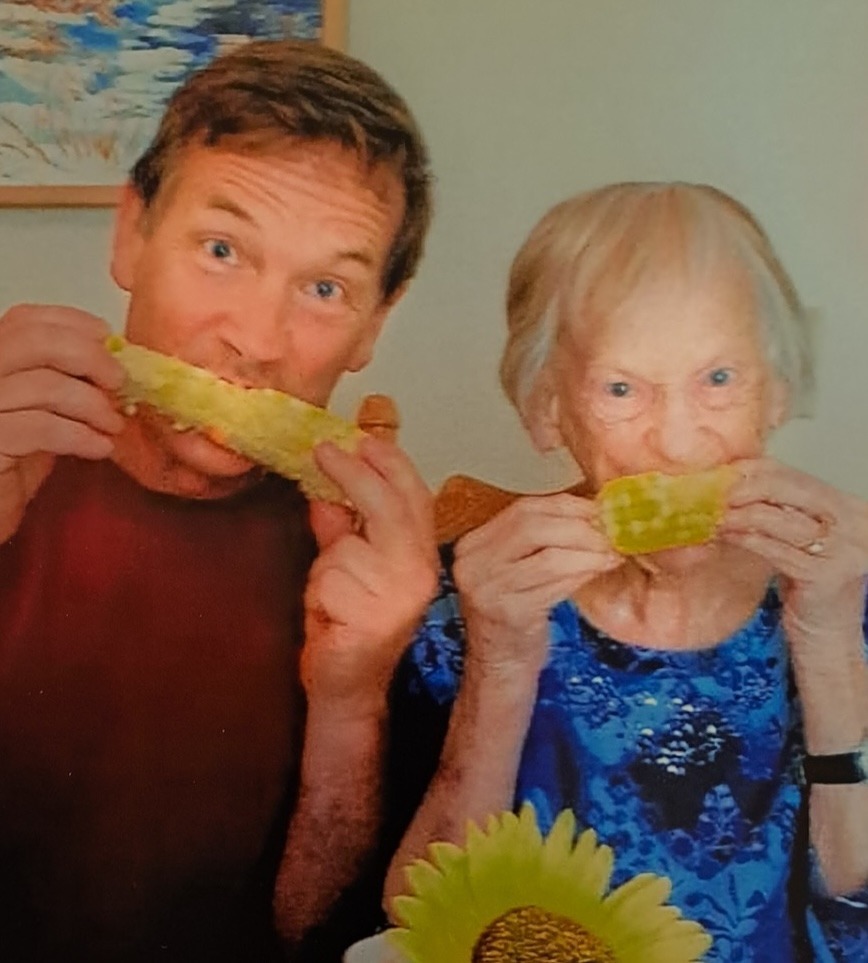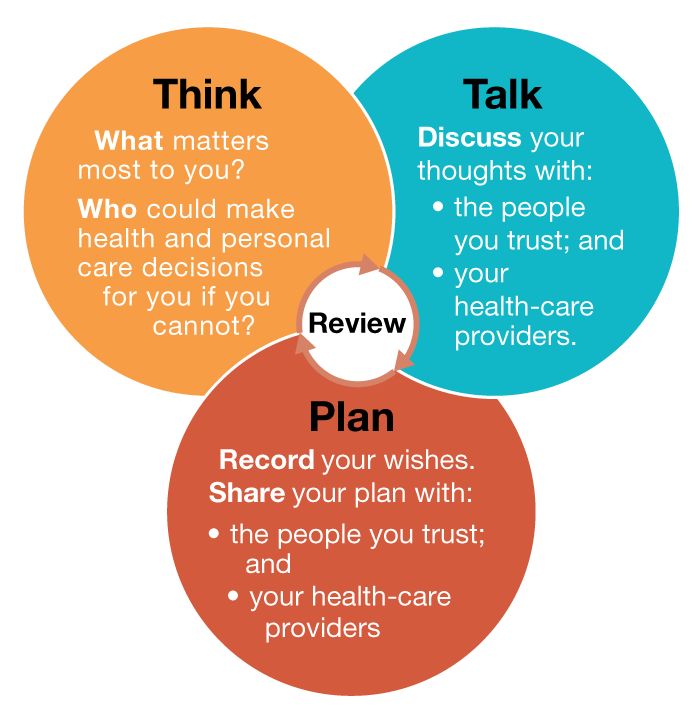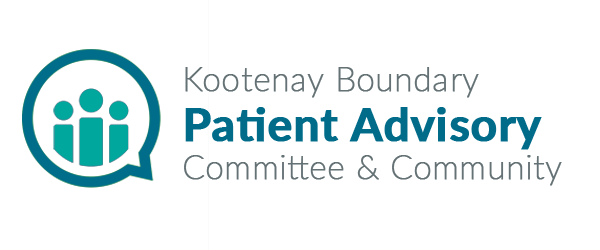Empowering the Citizen Patient

Article #3
Healthy People, Healthy Communities –
Tips for Caregiving and Caregiver Resources
In this “Empowering the Citizen Patient” article, Dr. Mindy Smith, retired family physician and active member of the Kootenay Boundary Patient Advisory Committee, shares her expertise. Focusing on caregivers, Dr. Smith offers practical tips and resources to help support their loved ones and themselves. Join us as we continue our journey to empower both patients and those who care for them.
At some point in our lives, we all take on the role of being a caregiver – whether it’s for a child, a partner with a temporary illness, a friend with cancer, or for an aging parent. Statistics Canada reports that, in 2022, 52% of women and 42% of men provided some form of care such as meal preparation, personal care, or helping with medical treatments for children and/or care-dependent adults. Caring for someone we love is a profound way to connect with and support them, but it can also be challenging. A good friend recently confided to me, “As Mom started deteriorating mentally, it got to be too much for me to handle.” This heartfelt admission captures the complex emotions of caregiving: a role filled with love, sacrifice, and, admittedly, a fair share of stress.
Help for Caregiving
Fortunately, in BC, there are many agencies that offer guidance and help. You’ll find some great resources listed on BC’s Home Care webpage include home and community care; assistive devices; and Retirement, Nursing and Care Homes. First Nations Health Authority has a page of awesome resources dedicated to Elders and their caregivers at https://www.fnha.ca/what-we-do/healthy-living/elder-wellness. Family Caregivers of BC is a non-profit organization that provides resources to navigate the healthcare system, as well as direct support through coaching and support groups. Visit https://wkbcaregiver.org/ or call their support line toll free: 1-888-212-2337.
If your friend or loved one is dying, I’d encourage you to seek end-of-life care and palliative care services (visit https://www.interiorhealth.ca/health-and-wellness/palliative-and-end-of-life-care/choosing-supportive-and-palliative-care-options).

Dr. Smith’s neighbour Jim enjoying a cob of corn with his mother Audrey.
My neighbour Jim told me “Using these services, we were able to access Home Nursing and Hospice care for our mother’s final days. I trusted the nurses who were both kind and experienced.” He also noted that important equipment included a recliner chair, bathtub chair lift, and their border collie whose visits were a great delight for everyone!
Advance Care Planning
All adults should think about what they want for their care if they get really sick or hurt and can’t make decisions themselves. In the medical world, this is called Advance Care Planning and it covers the person’s care goals, what they want to happen at the end of their life, and lets them appoint someone to make decisions for them.
Visit HealthLinkBC.ca and the Ministry of Health’s end-of-life care section for resources and straightforward guides (a full list of resources can be found at kbpacc.ca/empowering-the-citizen-patient). The tools available on these sites provide clear steps to help create a thoughtful and comprehensive care plan. They also provide links to the legal documents needed for appointing a representative to make decisions for someone in the event of future incapability. This can be crucial, for instance, when you need to access funds from the care recipient’s account to pay their bills.

Balancing work and financial matters while caring for a loved one can often add stress for everyone. If employed, you might qualify for financial support for caring for someone critically ill or at life’s end. Check eligibility and application details at Canada’s Employment Insurance caregiving benefits (https://www.canada.ca/en/services/benefits/ei/caregiving.html). For additional help, visit https://kbpacc.ca for a list of community agencies offering resources to ease caregiving pressures.
Helping a caregiver and their loved one
For some people, there is a personal and intimate side of caregiving that makes it difficult to ask for help. Family and friends are often willing to assist, but may be unsure of the specific needs or how best to offer support. For those wanting to help, suggesting specific things like grocery shopping, afternoon visits, and/or providing meals may be the most effective way to help. Being homebound, for both the involved person and their caregiver, can also be very isolating, so arranging phone or video calls is another way to help them stay connected and provide support.
Caring for the Caregiver
Finally, as a doctor who has seen many patients in the caregiver role, and as a caregiver myself, expressing how stressful it can be difficult. It’s like there’s an unwritten rule that says you should keep your struggles to yourself because the person you’re helping is dealing with a lot more. But the truth is, admitting we’re having a tough time allows us to seek the support we need to continue providing care with compassion and strength.

Jim and Audrey read a cattle magazine together!
Eating healthy food regularly, taking time out, resting, and exercising daily are vital ingredients, as is having a friend or family member you can talk with openly about both the rewards and the challenges you are experiencing.
Reflecting on this, my neighbor shared, “My life was on hold for sixteen months, but it was a meaningful experience and an opportunity to pay back in a small way to a person who had spent her life helping others.”
Click/Tap the LIKE button to share via email, instagram, Facebook and More!
We would love to hear from you!
What did you think of this article? What could we do better? Any suggestions for other articles that would be helpful? Please complete our short survey here!
Resources for Caregivers
BC Government
- Family & Social Supports/Seniors: Home Care – includes links to Assistive Devices & Disability Support, Retirement/Nursing/Care Homes, Hospitals & Health Clinics, End-of-Life Care
- Family & Social Supports/Seniors: Seniors BC – includes Advanced Care Planning, Caring for Seniors, and more. Caring for Seniors includes a short introduction to caregiving and general resources, tips etc.
- Health: Home & Community Care – includes info on Care Options and Costs, including End-of-Life Care
Community agencies
Family Caregivers of BC – non profit organization that supports caregivers with information, education and supports.
West Kootenay Boundary Caregiver Support – regional organization that supports unpaid Caregivers.
Key provincial and national agencies that offer caregiver support for the particular needs of the person for whom you are providing care:
- Cancer: BC (http://www.bccancer.bc.ca; information on treatment options, coping, support and palliative care), Hospice BC (https://bchpca.org or 877-410-6297; education and provision of hospice (focus on quality of life for those experiencing advanced life-limited illness) or palliative (focus on specialized medical care to ease pain and reduce stress) care.
- Dementia: Alzheimer Society (https://alzheimer.ca/en/help-support/im-caring-person-living-dementia or 800-616-8816) provides education and tips for providing care to someone with dementia; Interior Health (https://www.interiorhealth.ca/health-and-wellness/home-and-community-care# or 800-707-8550) provides information on help while living at home and respite care in addition to assisted living and long-term care; Canadian Institute for Health Information (https://www.cihi.ca/en/dementia-in-canada/unpaid-caregiver-challenges-and-supports) includes information and links to some supports.
- Diabetes: http://www.bcchildrens.ca/health-info/coping-support/diabetes has education handouts for families and caregivers.
- Heart Failure: Canadian Cardiovascular Society (https://ccs.ca/news/new-resource-heart-failure-medications-a-patient-caregiver-guide/) information on medications and communicating with the healthcare team
- Kidney disease: BCRenal (http://www.bcrenal.ca/health-info/managing-my-care/caregiver-support#Practical–Support) provides education and links to financial aid
- Mental Health: Mental Health Commission of Canada (https://mentalhealthcommission.ca/caregiver-resources/) provides links to national advocates and resource guides on schizophrenia and eating disorders; Mood Disorders Association of British Columbia (https://mdabc.net/resources/family-resources/) provides information, a family toolkit, and listing of community supports
KB FETCH Kootenay Boundary resource listings for a large number of Community Agencies that may provide support for caregivers related to the particular needs of the person for whom you are providing care. There are 70 listings for condition-specific information and support.
Interior Health
Accessing Seniors Health Services – includes a 1-800 number for information and access to a wide range of services including Advanced Care Planning, Home and Community Care, Aboriginal Patient Navigators, and Palliative and End-of-Life Care.
Federal Government
Employment Insurance Benefits for Caregivers
Aboriginal Supports in the Kootenay Boundary
COINS provides cultural connections and health and social supports for Aboriginal individuals and families living in the Kootenay Boundary region. COINS holds the Aboriginal Patient Navigator and Aboriginal Health Coordinator contracts for the Kootenay Boundary. COINS also offers the Aboriginal Early Development Program in the region. The COINS website describes a variety of programs for Early Years, Family Services, and Health & Wellness.
Métis Nation Chartered Communities provide support for Métis Nation BC citizens through cultural programming and some social programs. Find out more through local Chartered Community Presidents:
Kootenay South Métis, Myrt Servatius, Email: kootenaysouthcc@mnbc.ca
West Kootenay Métis, Nicole Courson, Email: westkootenaycc@mnbc.ca
Boundary Métis, Daina Shaw, Email: boundarymetiscommunity@gmail.com
First Nations Health Authority (FNHA) has a page of awesome resources dedicated to Elders and their caregivers. The page includes links to Advanced Care Planning. At the other end of the life course, early years supports are also amazingly helpful for caregivers:
Early Years Supports: https://www.fnha.ca/what-we-do/maternal-child-and-family-health

Get the articles direct to your inbox!
